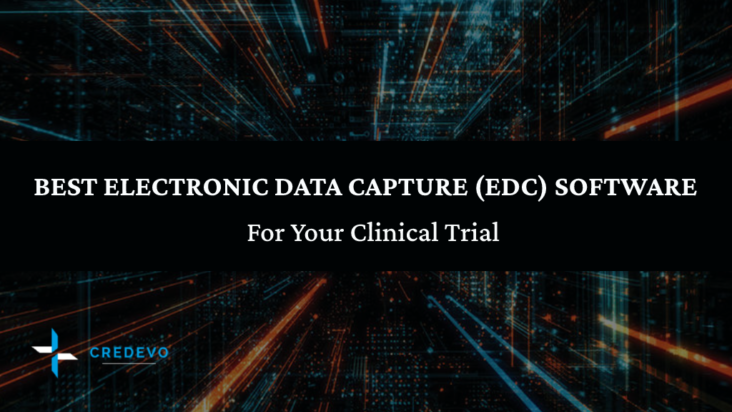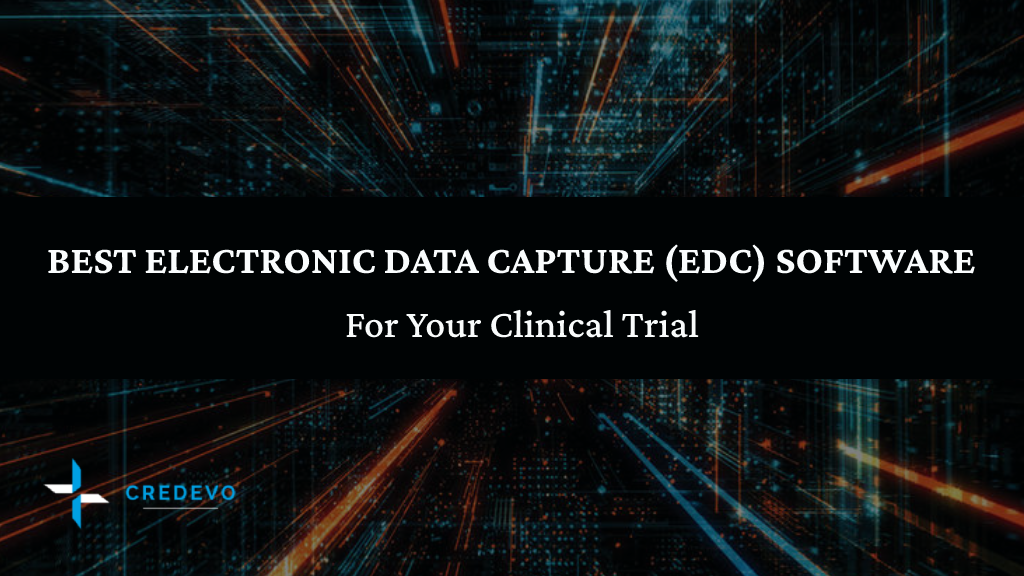How To Choose The Best Electronic Data Capture (EDC) Software?

In clinical studies, Electronic Data Capture (EDC) has become the preferred method to capture key-entered data. EDC systems are becoming cornerstones for research. Hence, choosing an EDC system is a crucial and complex process for drug development. The best EDC system involves collecting and managing data. The goal of EDC system selection is to identify organizational needs, document and ultimately check whether the desired functionality is available and appropriately supports clinical studies conducted by the organization.

Clinical trial studies collect data with paper-based case report forms and subsequently enter them into a database to create electronic records. However, this traditional method is time-consuming and error-prone.
In conventional trials, researchers abstract data manually from medical records, electronically extract it from medical records or enter it directly on Case Report Forms. The EDC has many advantages over conventional methods, these are the ability to enter, review and analyse data in real-time. It also helps implement online data validation checks to assure data quality more effectively during entry. In multi-centre clinical trials, data entry has evolved using decentralized data entry. Electronic data capture (EDC) has become a preferred method for “real-time” data capture in clinical trials.
The selection and implementation of an appropriate EDC system involve several stakeholders like data management, clinical management, biostatistics, project management, and information technology. The EDC systems sometimes are chosen for one study but can be used for multiple studies undertaken by a CRO.
How to choose the best Electronic Data Capture (EDC) system for your clinical trial?
Selection of the best EDC system is challenging. There are several factors to consider while choosing the best EDC system that suits your study the most. Some factors include data quality, compliance, costs, system options and flexibility, functionalities, and experience. Let’s see them one by one in detail.
Vendor background
Numerous vendors in the clinical trial industry offer EDC solutions. But to make an efficient selection process from several vendors, you need to consider many aspects from the vendor’s side. Here are a few.
- knowing about the vendor’s background
- vendor’s experience in various study types, therapeutic areas,
- number of customers,
- customer feedback to the EDC system,
- software development experience,
- vendor’s staff,
- financial stability,
- product support, and
- past performance.
Functionalities
The most common functionalities in an EDC system include data entry and identifying data discrepancies. Generally, vendors offer the same basic functionalities but differ in advanced functionalities. Some vendors cover a vast array of requirements through system configurability, such as multiple options for handling workflow and data flow for diverse data streams. High-level configuration may increase the complexity of setup, maintenance, and migration studies as well as software cost.
Some EDC features include
- Hybrid data entry model support
- Data discrepancies, identification, and resolution
- ePRO/eCOA integration
- Clinical Data Management System (CDMS) integration
- Laboratory data integration
- Data exchange between Electronic health records
- IVRS/IWRS (IRT System) integrations
- CTMS integration
- Safety data management
- Medical coding
Costs
The pricing varies across vendors based on the system’s technicalities and functionalities. The cost of EDC systems ranges from free services to thousands of dollars. Other factors that influence include the number of licenses, services offered by the vendors, type of agreement (per study or period), system response time, accessibility, etc. The pricing types include per study basis, monthly, or yearly basis.
Timelines
Another factor that influences the EDC selection process includes timelines. Before selecting an EDC system, one needs to consider the time for installation and validation of the EDC system. Additional time considerations include training duration, length of time to build a study-specific application, and the extent of changes to organizational processes and SOPs required.
Process compatibility
Sponsors need to check for compatibility factors. The current SOPs may not align with the system design. These incompatibility issues require a change in workflow or organizational process.
Regulatory compliance
21 CFR Part 11 of the Code of Federal Regulations defines the criteria under which electronic records and electronic signatures are considered trustworthy, reliable, and equivalent to paper records. It deals with the FDA guidelines on electronic records and electronic signatures in the United States. Most of the EDC’s in the market are compliant with HIPAA, ICH FDA, EU GDPR, etc.
Which are the best Electronic Data Capture (EDC) systems available in the market?
There are over 70 vendors in the EDC market segment. Few companies enter and leave the market often. However, upon all other criteria, the functionality of the EDC will be the game changer and differentiating factor from other EDCs for selection. When functionality is the same in all the vendors, other factors come into consideration.
Now let’s see a few top EDC systems available in the market.
Medrio EDC
Many pharmaceuticals, biotech, medical device, and animal health companies use Medrio’s Electronic Data Capture (EDC) platform. It complements electronic solutions such as ePRO, eConsent, and Direct Data Capture (DDC). They are also more efficient with skip logic and edit checks built into the platform as standard, and a study builds a timeline that’s 75% faster than the industry average.
- Medrio EDC is compliant with 21 CFR Part 11, HIPAA, FDA ICH GCP, EU GDPR, ISO 27001, and Gamp.
- Medrio allows quicker First Patient In
REDCap
REDCap Cloud is the 4th generation EDC solution with transformational built-in features and includes mobile app-based EDC, mid-study changes, monitoring, query management, medical coding, custom randomization, and a file repository.
- The REDCap Cloud Mobile App adds a new dimension to the software’s versatility.
- REDCap Cloud users can now collect their REDCap Cloud data in a mobile app on an iPhone, iPad, or Android phone or tablet.
- It allows easy to implement changes effectively.
- The Medical Coding module allows CRFs coding using a Medical Dictionary – e.g. MedDRA or WHO DRUG.
- REDCap Cloud offers a file repository at a central place to store and add project files.
- REDCap Cloud EDC is 21 CFR Part 11 compliant.
ClinVigilant
The cloud-based EDC from ClinVigilant provides highly configurable capabilities to create the paper CRF to eCRF using the proprietary Institutive eCRF designer tool. The key feature of CliniVigilant is the user does not require any programming skill to create, deploy and manage the study database, making it quite easy for researchers to capture high-quality, reusable data.
Now using virtual trials in clinical trials is becoming a necessity and the EDC solution from ClinVigilant allows for virtual clinical trial, where the data is directly captured into the system.
- ClinVigilant manages the source data electronically into the system, which gets fetched into the e-CRF directly. It not only eliminates the use of paper completely but also considerably reduces the efforts of SDVs.
- ClinVigilant EDC system is HIPPA, 21 CFR Part 11, ICH-GCP and GDPR compliant.
Oracle Clinical
Oracle Remote Data Capture provides a single application and infrastructure for electronic data capture and clinical data management. Oracle Clinical allows users to improve the data quality by providing a mechanism to record patient data at the location where it is collected. Oracle EDC allows users to perform data entry, verification, approval, and data management at the investigative site, that is, remotely, using a network to communicate with study database, which is usually located at a sponsor facility.
Medidata Rave
Medidata Rave Clinical Cloud was introduced in 2013. Medidata Rave is a cloud-based clinical data management system helps electronically capture, manage, and report clinical research data. It enables the user to record patient information using customized forms for each study.
Medidata is one of the pioneers in the clinical trial industry. It has a track record of 22,000 clinical trials run, capturing data from millions of patients. It can centrally manage users, roles, studies, and sites across all RAVE EDC.
Need Our Support In Choosing The Best EDC System Or Any Other Software Tool For Your Clinical Trial?
Credevo team provides extensive support in identifying best software tools for effortless management of your clinical trials. Provide your requirement details below to connect with us and explore.